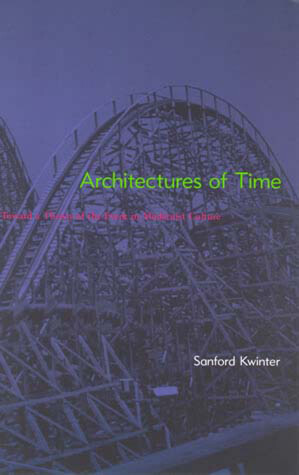An exploration of twentieth-century conceptions of time and their relation to artistic form.In Architectures of Time, Sanford Kwinter offers a critical guide to the modern history of time and to the interplay between the physical sciences and the arts. Tracing the transformation of twentieth-century epistemology to the rise of thermodynamics and statistical mechanics, Kwinter explains how the demise of the concept of absolute time, and of the classical notion of space as a fixed background against which things occur, led to field theory and a physics of the "event." He suggests that the closed, controlled, and mechanical world of physics gave way to the approximate, active, and qualitative world of biology as a model of both scientific and metaphysical explanation.
Kwinter examines theory of time and space in Einstein's theories of relativity and shows how these ideas were reflected in the writings of the sculptor Umberto Boccioni, the town planning schema of the Futurist architect Antonio Sant'Elia, the philosophy of Henri Bergson, and the writings of Franz Kafka. He argues that the writings of Boccioni and the visionary architecture of Sant'Elia represent the earliest and most profound deployments of the concepts of field and event. In discussing Kafka's work, he moves away from the thermodynamic model in favor of the closely related one of Bergsonian duree, or virtuality. He argues that Kafka's work manifests a coherent cosmology that can be understood only in relation to the constant temporal flux that underlies it.
- ISBN10 0262611813
- ISBN13 9780262611817
- Publish Date 23 August 2002 (first published 1 June 2001)
- Publish Status Active
- Publish Country US
- Publisher MIT Press Ltd
- Imprint MIT Press
- Format Paperback (US Trade)
- Pages 252
- Language English
- URL http://mitpress.mit.edu/9780262611817
